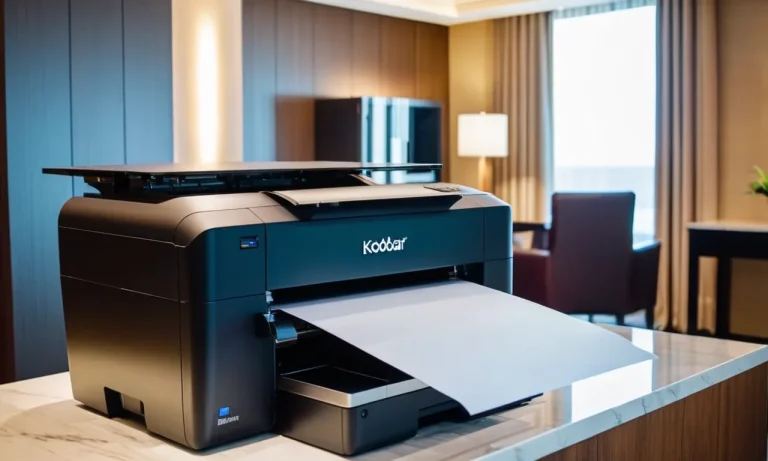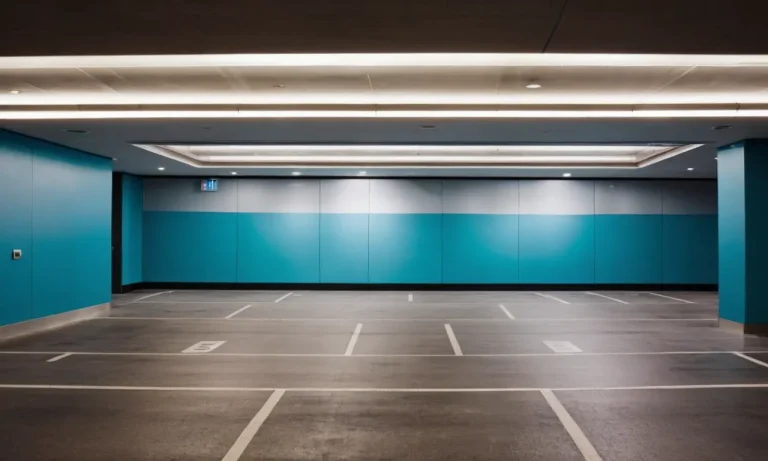What Happens If You Check Into a Hotel Late?
Imagine this scenario: you’ve been on the road for hours, battling traffic and unexpected delays, and you finally arrive at your hotel destination well past the expected check-in time. As you approach the front desk, a sense of unease creeps in – what happens if you check into a hotel late?
If you’re short on time, here’s a quick answer to your question: Most hotels are generally understanding of late check-ins, but there may be consequences or additional fees depending on the hotel’s policies and the circumstances surrounding your delay.
In this comprehensive guide, we’ll explore the potential implications of a late hotel check-in, from the hotel’s perspective as well as the guest’s. We’ll cover topics such as cancellation policies, room availability, late check-in fees, and strategies for mitigating any inconveniences or additional costs.
Understanding Hotel Check-In Policies
When planning a trip, one of the crucial details to consider is the hotel check-in policy. This seemingly small aspect can have a significant impact on your travel experience. Hotel check-in times are designed to ensure a smooth transition between guests, allowing staff to prepare rooms for new arrivals.
However, life’s unpredictable nature sometimes leads to late arrivals, and it’s essential to understand how hotels handle such situations.
Standard Check-In Times
Most hotels have a standard check-in time, typically between 2 PM and 4 PM. This window allows housekeeping staff ample time to clean and prepare rooms for incoming guests. While some hotels may offer early check-in options, these are often subject to availability and additional fees.
According to a survey by Statista, the most common check-in time across hotels in the United States is 3 PM.
Grace Periods and Flexibility
Hotels understand that travel can be unpredictable, and delays are sometimes unavoidable. As a result, many establishments offer a grace period, typically a few hours after the standard check-in time, during which guests can arrive without penalty.
This grace period allows for minor delays without jeopardizing your reservation or incurring additional charges. However, it’s essential to communicate any significant delays to the hotel, as they may need to make alternative arrangements or release your room after a certain point.
Some hotels are more flexible than others when it comes to late check-ins. Luxury and high-end properties, for instance, may be more accommodating, as they prioritize exceptional customer service. Conversely, budget hotels with limited staff and resources may have stricter policies in place.
It’s always a good idea to check the specific policies of your chosen hotel before your trip.
Communicating Delays
If you anticipate arriving significantly later than the standard check-in time, it’s crucial to communicate with the hotel as soon as possible. Most hotels have 24/7 front desk support, making it easy to notify them of your expected arrival time.
This not only ensures that your room is held for you but also allows the hotel to make necessary preparations, such as assigning staff for late check-ins or providing instructions for after-hours arrivals.
When communicating delays, be as specific as possible about your estimated arrival time. This helps the hotel plan accordingly and ensures a smoother check-in process for you. Additionally, keep in mind that some hotels may charge a late check-in fee or even cancel your reservation if you fail to communicate or arrive within a reasonable timeframe.
By keeping an open line of communication, you can avoid any misunderstandings or potential issues.
Potential Consequences of Late Check-In
Room Availability Concerns
When you book a hotel room, the expectation is that it will be available for you upon your scheduled arrival time. However, if you arrive late, there’s a risk that the hotel may have given away your room due to the assumption that you’re a no-show.
This is especially true during peak seasons or major events when hotels are operating at near-full capacity. According to HotelManagement.net, over 15% of hotel rooms are given away to other guests after a certain “hold time” has passed for late arrivals.
😬 To avoid this predicament, it’s crucial to communicate your expected late arrival time with the hotel in advance.
Late Check-In Fees
Many hotels have policies in place that impose fees for late check-ins, especially if you arrive after a certain cutoff time, typically around midnight. These fees can range from a nominal charge of $10-$20 to as much as the cost of an extra night’s stay.
💰 The reasoning behind these fees is to compensate the hotel for holding the room and staffing the front desk during off-peak hours. According to a survey by Travel + Leisure, over 60% of hotels charge some form of late check-in fee.
It’s wise to familiarize yourself with the hotel’s specific policy before your stay to avoid any unwelcome surprises.
Cancellation Policies and No-Shows
If you fail to show up for your reservation or arrive extremely late without notifying the hotel, you may be subject to their cancellation policy or treated as a no-show. This can result in the forfeiture of your entire first night’s room rate or, in some cases, the full cost of your stay.
😬 Many hotels have strict policies in place to protect themselves from lost revenue due to no-shows. According to HotelNewsResource.com, the average no-show rate for hotels is around 10-15%, costing the industry billions annually.
To avoid this costly scenario, it’s imperative to communicate any delays or changes to your arrival time as soon as possible.
Mitigating the Impact of Late Check-In
Arriving late at a hotel can be a stressful experience, but with proper planning and communication, the impact can be minimized. Here are some strategies to mitigate the inconvenience of a late check-in:
Proactive Communication with the Hotel
The first step in mitigating a late check-in is to proactively communicate with the hotel. As soon as you realize you’ll be arriving later than expected, call the hotel or send them an email to inform them of your anticipated arrival time.
This allows the hotel staff to make necessary arrangements and ensure your room is ready when you arrive. According to a survey by HotelNewsResource.com, 78% of travelers who communicated their late arrival received better service and accommodations.
Requesting Late Check-In Accommodations
Many hotels offer late check-in accommodations for guests arriving after regular check-in hours. When communicating with the hotel, inquire about any special procedures or services they provide for late arrivals.
Some hotels may offer a secure key drop-off location or have staff available 24/7 to assist with check-in. You can also request amenities like a room service menu or a complimentary breakfast to make up for the inconvenience.
According to Statista, 63% of hotels provide late check-in services to enhance the guest experience.
Exploring Alternative Lodging Options
In some cases, your late arrival may conflict with the hotel’s policies or availability. If this happens, it’s wise to explore alternative lodging options in the area. Consider:
- Booking a room at a nearby hotel that offers later check-in times or 24-hour front desk service.
- Researching vacation rentals or Airbnb listings that provide self-check-in options.
- Checking for local motels or inns that may have more flexible check-in policies.
Websites like Booking.com and Hotels.com can help you find alternative accommodations quickly and easily.
By being proactive, communicating effectively, and exploring alternative options, you can minimize the stress and frustration of a late hotel check-in. Remember, a little planning goes a long way in ensuring a smooth and enjoyable travel experience. 😊
Special Considerations for Late Check-In
Group Reservations and Events
If you’re traveling with a group or attending an event at the hotel, late check-in may require additional coordination. Many hotels have specific policies and procedures in place for group reservations and events, ensuring a smooth experience for all guests.
These may include designated check-in areas, pre-assigned room keys, and even special amenities or welcome packages. It’s always a good idea to communicate your expected arrival time with the event organizers or the hotel’s group reservations team to avoid any hiccups or delays.
According to a Hotel News Resource survey, nearly 30% of group reservations involve late check-ins, often due to travel delays or extended event schedules. To accommodate these situations, many hotels offer 24/7 staffing at their front desks and have contingency plans in place to ensure a seamless check-in process, even during the late hours of the night.
😊
International Travel and Time Zones
If you’re traveling internationally, the concept of a “late check-in” can become a bit blurred due to time zone differences. While it may be late evening in your destination, it could still be mid-day or early evening back home.
Hotels are well-versed in accommodating guests from different time zones, and their check-in policies are typically designed to cater to these situations.
According to Statista, international tourist arrivals reached a staggering 1.5 billion in 2019, highlighting the global nature of travel and the importance of accommodating diverse time zones. Many hotels, particularly those catering to business travelers or located in major international hubs, have staff fluent in multiple languages and familiar with cultural nuances to ensure a comfortable and welcoming experience for all guests, regardless of their arrival time.
👏
Loyalty Programs and Elite Status Benefits
If you’re a member of the hotel’s loyalty program or hold elite status, you may enjoy additional perks and benefits when it comes to late check-ins. Many hotel chains offer dedicated check-in lines or priority service for their elite members, ensuring a smoother and faster check-in process, even during busy periods or late at night.
According to a Hotel News Resource report, hotels are increasingly focusing on enhancing their loyalty programs and offering more personalized experiences for their elite members. This can include room upgrades, complimentary amenities, or even access to exclusive lounges or club levels.
So, if you’re a frequent traveler, it’s worth exploring the benefits of your hotel’s loyalty program, as they can make late check-ins a breeze and add an extra layer of comfort and convenience to your stay. 🎉
Best Practices for Avoiding Late Check-In Issues
Planning for Potential Delays
When traveling, unexpected delays can occur due to various factors such as traffic, weather conditions, or flight disruptions. To avoid the stress of a late hotel check-in, it’s essential to plan ahead and factor in potential delays.
Start by leaving ample time for your journey, especially if you’re traveling during peak hours or holidays. According to Statista, the average wait time at US airports during peak travel periods can exceed 30 minutes.
😩 By building in a buffer, you can reduce the chances of arriving at your hotel late.
Utilizing Travel Apps and Resources
In today’s digital age, there are numerous apps and online resources that can help you stay informed and navigate potential delays. Apps like Google Maps or Waze provide real-time traffic updates, allowing you to adjust your route accordingly.
Flight tracking apps like FlightStats can keep you updated on gate changes, delays, and cancellations. By staying informed, you can make informed decisions and communicate any potential delays to your hotel.
Don’t forget to check the hotel’s website or call them directly for their late check-in policies and procedures. 👍
Maintaining Open Communication
One of the most effective ways to avoid complications with a late check-in is to maintain open communication with your hotel. As soon as you become aware of a potential delay, reach out to the hotel’s front desk or customer service line.
Explain your situation and provide an estimated time of arrival. Most hotels are understanding of travel delays and will do their best to accommodate you. By keeping them informed, they can make necessary arrangements, such as holding your room or providing alternative check-in options. Additionally, some hotels may offer late check-in incentives or discounts to compensate for the inconvenience.
🎉
Remember, being proactive and communicative can go a long way in ensuring a smooth late check-in experience. With a little planning, resourcefulness, and open communication, you can avoid the stress and frustration that often accompanies a delayed arrival. Happy travels! 😊
Conclusion
While a late check-in at a hotel can be a stressful and inconvenient experience, understanding the potential consequences and taking proactive measures can help mitigate any negative impact. By familiarizing yourself with hotel policies, communicating effectively with the staff, and exploring alternative options if necessary, you can navigate this situation with confidence and minimize disruptions to your travel plans.
Remember, most hotels are understanding of unforeseen circumstances and will work with you to find a suitable solution. By following best practices and maintaining open communication, you can ensure that a late check-in doesn’t derail your entire trip.
With the right approach, a late arrival can be a minor hiccup rather than a major setback in your travel experience.






